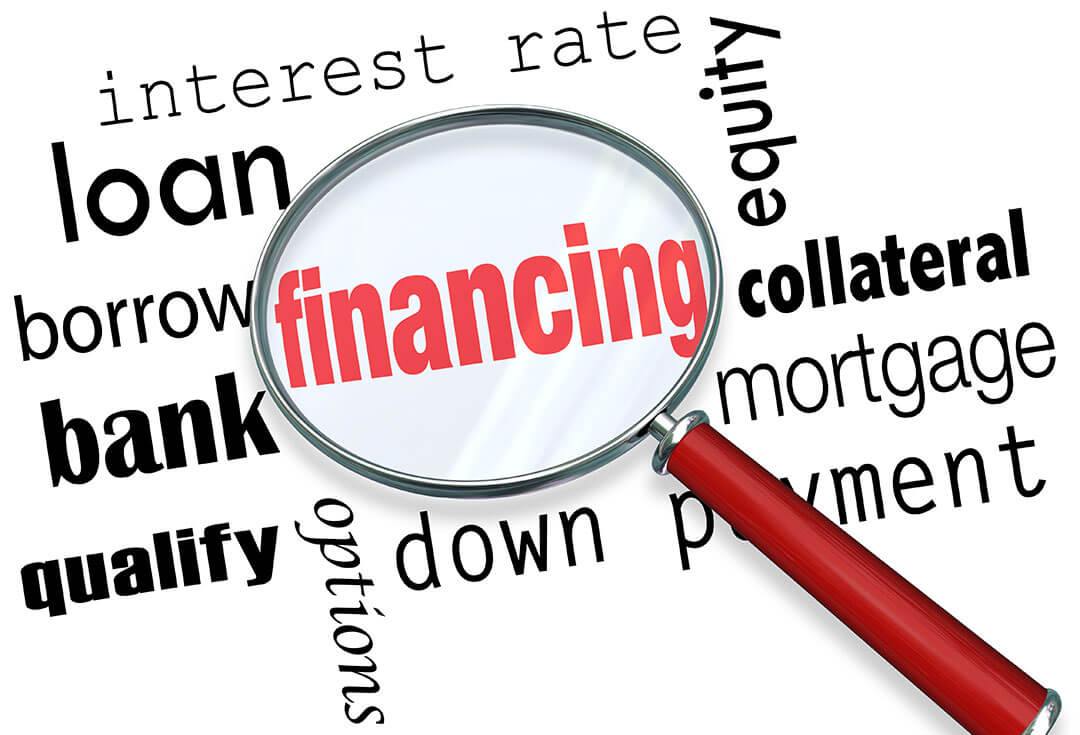If you have equity in your home then you can apply for a home equity loan at the same time as you refinance. If you expect some extra cash either now or down the road getting a home equity loan that is also known as second mortgage when you refinance it saves your time and money as well as stress of going through the financing process two times. Most of the lenders do not charge any additional fees when you apply for a home equity loan simultaneously with a refinance. When it comes to home financing there are not always quite strict leading rules. But homeowners can use nontraditional types of income including rents, so long as other qualifications. As well as 100 percent financing is with an 80-20 mortgage which is a first mortgage and an equity loan.
Term Loans & Lines Of Credit:
There are two types of second mortgages; term equity loans and lines of credit. Suppose you got a second mortgage for $20,000. With a term loan, the lender would give you the full amount at closing, and you would pay it back with regular payments over a set period of time, usually 10 or 15 years. In that sense it works the same as a first mortgage loan. With a home equity line of credit (HELOC) you have the ability to draw any amount from zero up through the full $20,000. You only pay interest on what you actually use. HELOC payments are interest-only for a set period of time, usually 5 or 10 years, after which you will need to make principal and interest payments on the remaining balance.
Term Loans for Immediate Needs:
If you are in need of funds right away it is most common to simply change your refinance into a cash-out loan, therefore enclosing everything into a single payment. But a term equity loan might also make sense. For example, if you expect receiving a large amount of cash in six months or a year, but need funds now, it would be smart to get a second mortgage when you refinance. Then you can pay off the equity loan and only be left with the payment on your first mortgage. If you are considering this you have to be sure to negotiate with your lender for a home equity loan with no prepayment penalty.
Second Mortgages Require Equity:
Home equity loans and lines of credit require considerable equity for qualification. Some lenders only lend on an equity loan up to a combined loan-to-value ratio of 80 percent, while some will go up to 90 percent. If you do have equity in your home then these loans can be great for you with low-cost source of funds for a variety of needs.
Finding the Right Lender:
Do not feel bound with a single lender. If you find a lender that offers a great mortgage refinance rate but you know that there are banks with better terms on home equity loans so you should go for the best deal. Fill out your refinance application with the lender of your choice, just like as you would if you were not applying for a home equity loan. When you apply for the equity loan and complete the application but demonstrate that you will have a first mortgage in X amount of dollars in front of the equity.
Income Qualification:
When you apply for both the mortgage and home equity loan the lender verifies your debt-to-income ratio. For the refinance more than 28 percent of your income cannot go toward your mortgage payment with taxes and insurance and more than 36 percent cannot be allotted to your overall debt. Although this will be your first lien but the refinance lender would not take the equity loan into account. On the equity loan your debt-to-income ratio can be a maximum of 40 percent, including your refinance payment, the equity payment and any other outstanding loans, car payments or credit cards.
Insurance/ Guarantee:
When applying for a refinance and home equity loan simultaneously especially at different lenders the appraisal can be a problem. Your total loan-to-value ratio including both the refinance and home equity cannot exceed 80 percent. If you apply for both loans at the same lender, it will use only one appraisal. However, if you apply at different lenders then you can end up with two appraisals at two different values without mentioning that you will end up paying for both appraisals as well. Preferably see if the lender on the equity loan will accept the appraisal for the refinance since it is a current independently prepared report. The equity lender may charge a nominal appraisal review fee but at least you know you have a consistent value.
Closing:
The timing of closing is important when applying for two loans simultaneously. Liens on your property are based on priority, meaning the lender whose lien is recorded first has first rights to your property if you do not pay as agreed. The refinance lender expects to be your first lien while the equity lender understands that it will be the second. When you get your approval, schedule your refinance closing first, with the equity loan about a week later.


